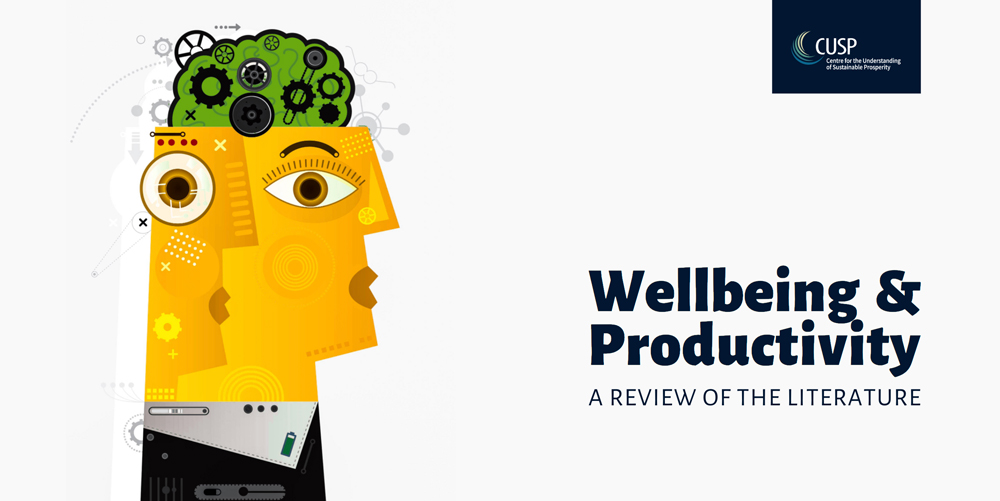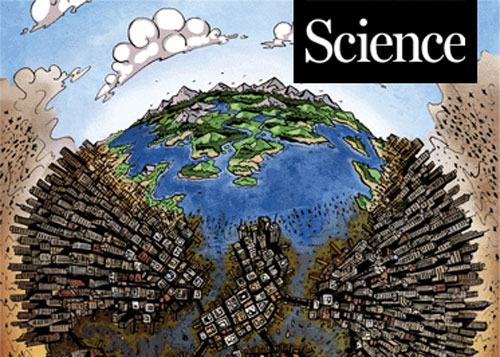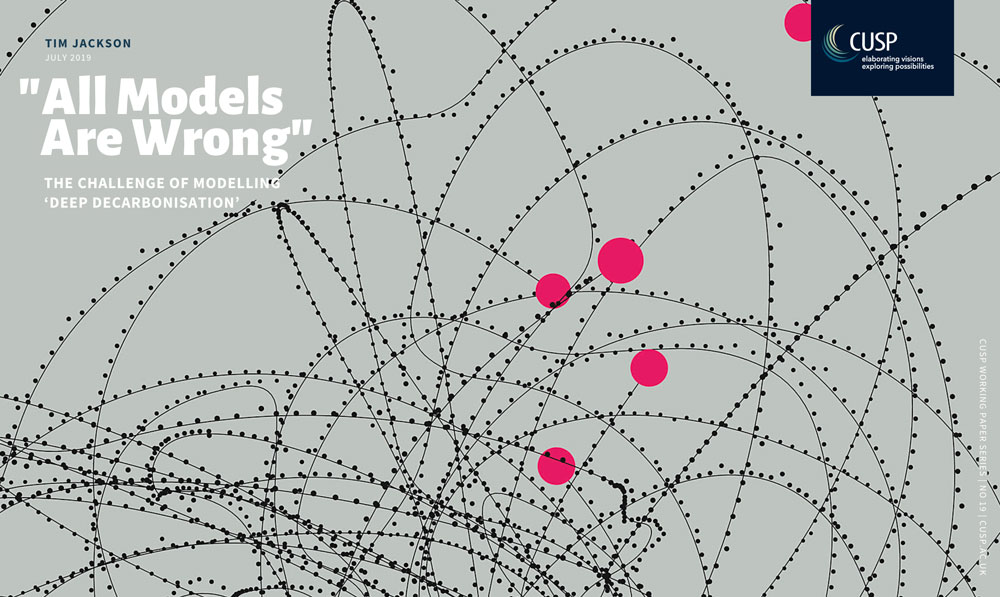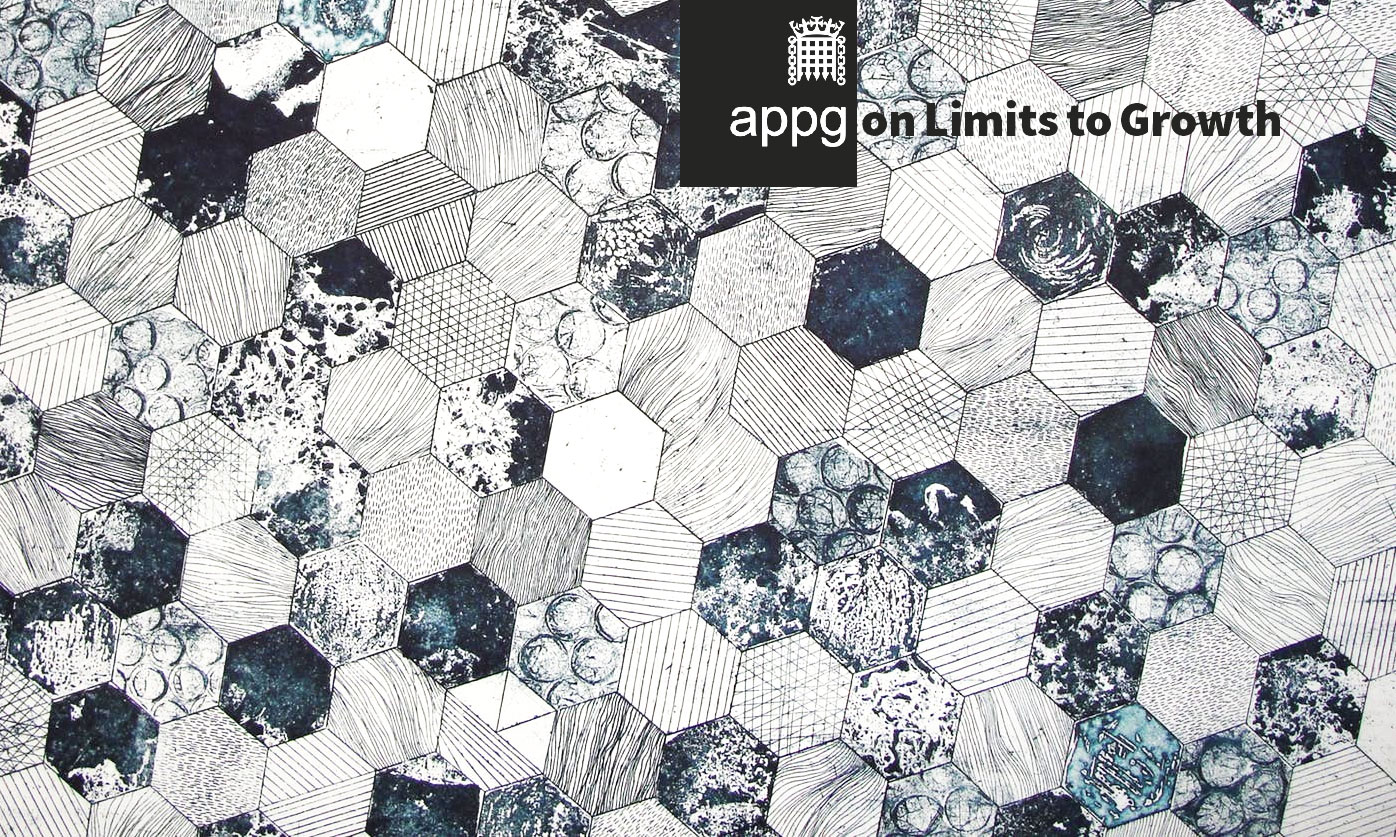publications 62 results
-
Wellbeing and Productivity: A Review of the Literature | Paper
This report reviews the relationships between the different aspects of wellbeing, productivity, and productivity growth. It is the culmination of a desk-based evidence review, survey, and a mapping workshop held with experts from backgrounds including psychology, sociology, economics, and design. The focus is on wellbeing and labour productivity.Unravelling the claims for (and against) green growth | Science Article by Tim Jackson and Peter Victor
It is clear that the larger the economy becomes, the more difficult it is to decouple that growth from its material impacts... This isn't to suggest that decoupling itself is either unnecessary or impossible. On the contrary, decoupling well-being from material throughput is vital if societies are to deliver a more sustainable prosperity—for people and for the planet. (This article is posted on the Science website).LowGrow SFC—A stock-flow-consistent ecological macroeconomic model for Canada | Paper
This working paper by Tim Jackson and Peter Victor presents a stock-flow consistent (SFC) simulation model of a national economy, calibrated on the basis of Canadian data. LowGrow SFC describes the evolution of the Canadian economy in terms of six financial sectors. Contrary to the accepted wisdom, the results indicate the feasibility of improved environmental and social outcomes, even as the growth rate declines to zero.Ethics in context: essential flexibility in an international photo-elicitation project with children and young people | Paper
In this paper, we reflect on our experiences of planning and conducting the International CYCLES project involving photo elicitation with young people in Bangladesh, Brazil, India, Japan, New Zealand, South Africa and the UK. While some issues such as varying access to technology for taking and sharing photos and diverse cultural sensitivities around the use of photography were anticipated in advance, others were more unexpected.The storied state of economics: Review of Robert Shiller’s Narrative Economics | By Tim Jackson
“Economists are tellers of stories and makers of poems,” wrote the economic historian Deidre McCloskey in 1990. It’s a curious observation for a profession that prides itself on hard-nosed, quantitative analysis and strives continually for predictive power. The Nobel-prizewinning economist Robert Shiller goes even further. His new book probes how social behaviour trumps statistics in determining the fate of economies—Tim Jackson weighs it up.Engagement in a new climate | Editorial for the Environmental Scientist
Environmental engagement is on television screens, in the streets and at your local book group; everyone's doing it. Whether you're engrossed in the latest nature documentary or watching the news in the evening, environmental communicators are everywhere and everyone.—This edition of Environmental Scientist focuses on the new radicalism in environmental engagement; with an Editorial by Tim Jackson.HM Treasury’s Decarbonisation of the UK Economy and Green Finance Inquiry | Evidence Submission
Earlier in 2019, the UK Treasury Select Committee launched an inquiry into the decarbonisation of the UK economy and green finance, set out to scrutinise the role of the Treasury department, regulators and financial services firms in supporting the UK Government’s climate change commitments. Drawing on recent CUSP reports, Tim Jackson submitted evidence.2050 is too late—we must drastically cut emissions much sooner
At current rates of reduction, the UK fair carbon budget will be spent in just four years' time, Tim Jackson writes in his blog for The Conversation. "Every year that progress is delayed, the challenge only gets bigger", he argues, we don't only need a credible strategy on zero carbon targets, but also emission pathways, with a defined level of negative emission technologies.Measuring Prosperity—Navigating the Options | Paper
Since its development in the 1930s, GDP has been the most widely used measure of the health and progress of an economy, being adopted as the principal policy objective of countless national and international bodies across the world. Its many shortcomings as a measure of progress are well documented, and the alternative indicators of progress developed in response to these shortcomings have been diverse and numerous. This paper synthesises the literature, highlighting the importance of context and purpose in determining what makes a ‘good’ indicator.“All Models are Wrong”—The challenge of modelling ‘deep decarbonisation | Paper
This briefing paper summarises the dilemma associated with using mainstream, macroeconomic models to guide disruptive, transformative change such as those that might occur under ‘deep decarbonisation’: a rapid transition to a net-zero carbon economy. Some form of macro-economic modelling framework is essential to enable policy-makers to exercise short- and long-term fiscal responsibility. Incremental models based on historical behaviour, however, are a poor guide to outcomes under circumstances of disruptive change.Living the Good Life on Instagram —An exploration of lay understandings of what it means to live well | Paper
While the consumerist approach to what living well can mean permeates traditional media, the extent to which it appears in people’s own depictions of the good life is unclear. Using multimodal discourse analysis, this article uses a sample of posts tagged #goodlife and variants collected on Instagram to explore which understandings of the good life can be found on the platform, and what their wider implications in the consumer society are.Zero Carbon Sooner —The case for an early zero carbon target for the UK | Paper
This briefing paper addresses the question of when the UK should aim for zero (or net zero) carbon emissions. Tim Jackson is making the case for a (fair) zero carbon target of 2030, and calling for a policy strategy on emission pathways, with a defined level of negative emission technologies.Our Future in the Land | Final report of the RSA Food, Farming & Countryside Commission
The RSA Food, Farming & Countryside Commission with CUSP director Tim Jackson as Commissioner and Chair of the Research Advisory Group have published their final report, calling for radical 10-year plan to transition to sustainable food system with more government support for healthy produce.Green, prosperous and fair: a vision for Europe’s future
After the most profound shake-up in decades, European politics stands at a pivotal point in its long history. With nationalist parties drawing support from communities who have been left behind and green parties benefiting from a huge upsurge of concern around climate breakdown and biodiversity loss, there is a unique opportunity, argues Tim Jackson, to build a new vision for Europe that is green, prosperous and fair.Beyond Redistribution—Confronting inequality in an era of low growth | Policy Briefing for APPG on Limits to Growth
The second in the series of briefing papers on building An Economy That Works explores inequality in the UK. It examines the evidence for rising inequality over the last fifty years, estimates the economic welfare lost to society from an unequal distribution of incomes and addresses the critical question of managing inequality in the context of declining growth rates.Paradise Lost?—The iron cage of consumerism
Our systematic failure to address existential anxiety robs society of meaning and blinds us to the suffering of others; to persistent poverty; to the extinction of species; to the health of global ecosystems. With his think piece Angst essen Seele auf — Escaping the ‘iron cage’ of consumerism, Tim Jackson adds to an eclectic set of essays, published in honour of Wolfgang Sachs.Understanding the ‘New Normal’—The Challenge of Secular Stagnation | Policy Briefing for APPG on Limits to Growth
This first in a series of briefing papers on building An Economy That Works explores the underlying phenomenon of ‘secular stagnation’ – a long-term decline in the rate of growth of the Gross Domestic Product (GDP). The paper examines the evidence, explores the causes and discusses the implications of what some now call the ‘new normal’.The Future Of Work — Lessons from the History of Utopian Thought | Paper
This paper aims to contribute towards the development of a political economy of work fit for purpose in a world of social and environmental limits. In order to get beyond today’s dominant conceptions of work in a growth-based capitalism, Simon Mair, Angela Druckman and Tim Jackson explore the role of work in historical utopias.The Post-Growth Challenge — Secular Stagnation, Inequality and the Limits to Growth | Paper
Sluggish recovery in the wake of the financial crisis has revived discussion of a ‘secular stagnation’. These conditions have been blamed for rising inequality and political instability. Tim Jackson contests this view, pointing instead to a steadfast refusal to address the ‘post-growth challenge’.Confronting inequality in a post-growth world – Basic income, factor substitution and the future of work | Paper
Piketty argued that slow growth rates inevitably lead to rising inequality. If true, this hypothesis would pose serious challenges for a ‘post-growth’ society. If true, this hypothesis would pose serious challenges for a ‘post-growth’ society. Fiscal responses to this dilemma include Piketty’s own suggestion to tax capital assets and more recent suggestions to provide a universal basic income that would allow even the poorest in society to meet basic needs.Beyond Consumer Capitalism—Foundations for Sustainable Prosperity | Paper
This paper explores the ramifications of the combined crises now faced by the prevailing growth-based model of economics. In paying a particular attention to the nature of enterprise, the quality of work, the structure of investment and the role of money, the paper develops the conceptual basis for social innovation in each of these areas, and provides empirical examples of such innovations.The Mindful Consumer—A Big Ideas think piece
This paper forms part of the exploration of the topic of consumption and wellbeing, in which earlier consultation and deliberation identified a key question of how societies might reduce or replace the role of consumption and consumerism in supporting human identity. Here, Alison Armstrong and Tim Jackson bring their cutting-edge research and deep experience in sustainable consumption to bear on the topic.





















